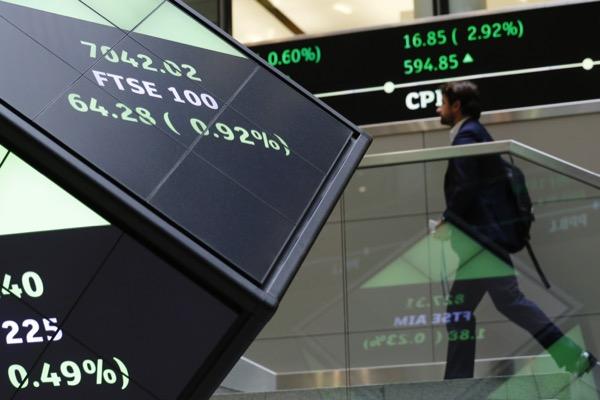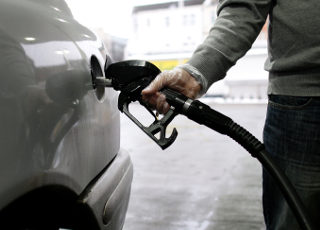
What are the top FTSE 100 stocks to keep an eye on as the index begins to recover?

Two years ago today, the FTSE 100 index closed at 5,190 points, after its 32% covid-19 pandemic-induced crash since 17 January 2020.
But even as the Russia-Ukraine war rages, the UK’s premier index is back to 7,405 points, only slightly down from its 7,611 February high.
And with oil, inflation, and interest rates rising, value investors are now turning to the FTSE 100’s oil majors, BP and Shell, and its bank stocks, HSBC, Barclays, Lloyds, and NatWest. Downtrodden IAG and Rolls-Royce are also popular for those banking on a travel recovery.
However, the popularity of these high-volume stocks leaves them potentially exposed to overvaluation. It can pay to watch the lower volume choices.
1. Rightmove
Rightmove (LON: RMV) shares hit a record 800p on 30 December 2021, as last year’s ‘race for space’ saw the average UK house price increase by an incredible 10.8% to £275,000.
Correspondingly, the owner of the UK’s largest property website had its busiest year ever in 2021, as revenue hit £305 million, generating annual pre-tax profits up 67% to £226 million. Moreover, Rightmove’s average revenue per advertiser rose 53% year-over-year to £1,189 per month.
And with a healthy operating margin of 74%, home browsers spent a record 18 billion minutes on Rightmove’s platforms last year. And despite a myriad of property portals, its only close competitor for market share is privately held Zoopla.
Of course, rising interest rates are sparking fears for a housing market correction. Capital Economics Chief Economist Paul Dales thinks the bank rate ‘will be increased to 1.00% in May and will reach 2.00% next year.’
And Rightmove believes ‘as the market normalises, we expect the number of transactions to return to pre-pandemic levels.’ But Lucian Cook, head of residential research at Savills, expects ‘the imbalance between fairly resilient levels of demand and the shortage of available stock on the market to continue to be the overriding driver of house prices.’
Winkworth CEO Dominic Agace concurs, saying ‘it is likely these rate rises will slow growth but with a buoyant labour market and shortage of supply, I would expect positive price growth to continue this year.’

2. AutoTrader
AutoTrader (LON: AUTO) shares hit a peak of 740p on 31 December 2021, nearly doubling from their 372p pandemic low in April 2020. But they’ve since fallen to 676p as inflation and geopolitical pressures bear down on every FTSE 100 stock.
In half-year results to 30 September, the company achieved its ‘highest ever six-monthly revenue and profits,’ with ‘consumer engagement and retailer numbers at record levels, our competitive position has strengthened and product uptake by customers has been strong.’
Revenue rose by 82% to £215.4 million, while operating profit increased by 121% to £151.7 million on a 70% profit margin. Moreover, average revenue per retailer rose by £993 to £2,1999 per month. And it also returned £148.4 million to shareholders through dividends and share buybacks.
Cross platform visits rose by 20% to 68.7 million per month on average. With its 633 million monthly cross platform minutes representing 75% market share, it’s grown ‘to be almost 9x larger than our nearest competitor.’
And company research indicates used car prices are now at record highs. A typical second-hand car has risen in price by £4,000 to £18,929 over the past year, as the supply chain crisis creates huge delays for deliveries of new cars. The delays have become so bad, 21% of second-hand cars under a year old are more expensive than their brand-new equivalents.
Moreover, as the Russia-Ukraine crisis sends semiconductor-critical Palladium and Neon to record highs, further supply chain issues and price rises seem inevitable. Autotrader could see higher profit, as it charges more to list higher-value cars.
Autotrader argues that ‘consumer demand remains robust, as reflected in the 12 per cent increase in the volume of enquiries sent to retailers through the Auto Trader platform last month when compared to February 2021…what’s more, the speed in which used cars are selling has also accelerated significantly.’
The company’s director of data and insights Richard Walker believes ‘any suggestion therefore of a bubble bursting is based on pure speculation, and not the data, which clearly points to very high prices remaining for quite some time to come.’ In H1 results, physical car stock was down 9% to 436,000. And this was in September; shortages are likely to have worsened since.
Both Rightmove and Autotrader are market-dominating FTSE 100 stocks trading an in-demand product. And both could soar as the index continues its recovery.